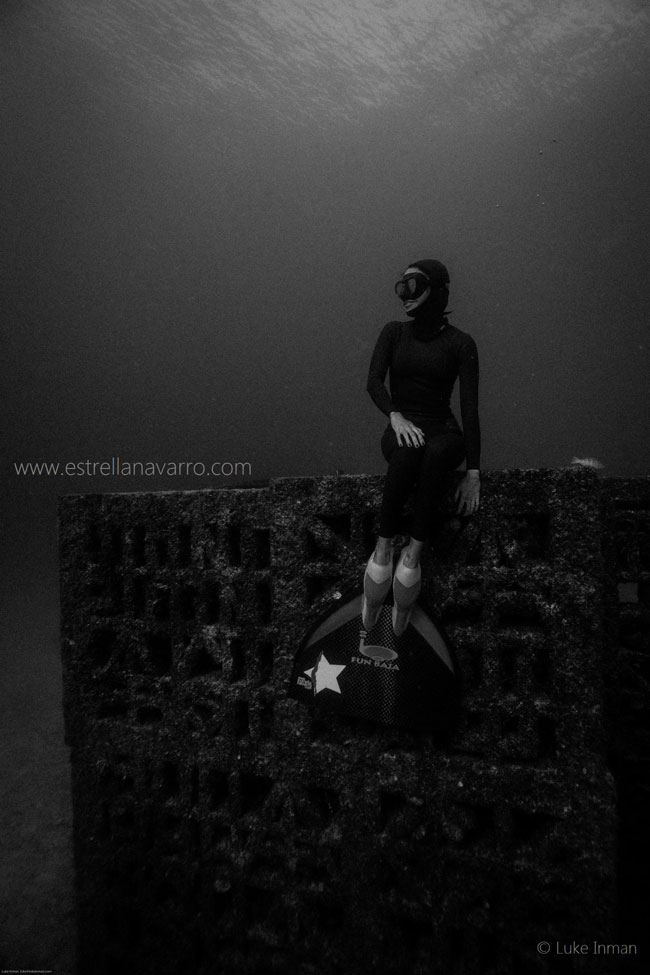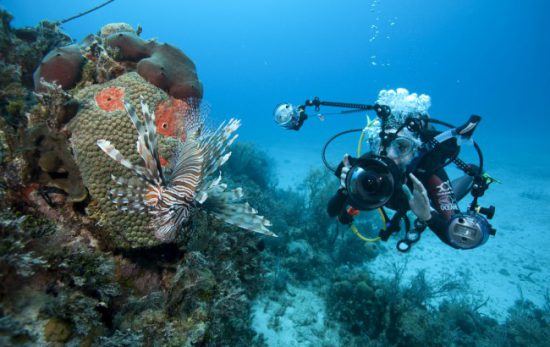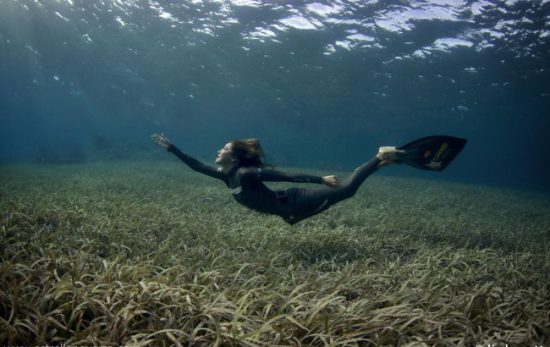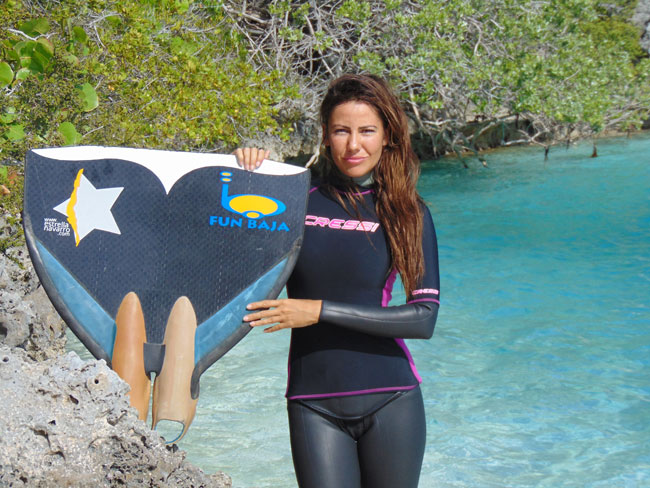
Freediving champion Estrella Navarro / estrellanavaro.com – Photo courtesy Aurore Asso
Guest blogger: John Kinsella
Estrella Navarro knows a thing or two about freediving and fitness. She holds a bronze medal from the 2013 freediving world championships in Greece and she recently reclaimed two Mexican national freediving records (she now holds 14) at Vertical Blue competition in the Bahamas. She’s also an accomplished TV presenter and a model, above and below water. She graces magazine covers, has worked on productions for the BBC and the Travel Channel, and acts on underwater film shoots. She’s well qualified to talk about fitness for scuba divers of all kinds.
I asked Estrella what she does to prepare for an event such as Vertical Blue and how that relates generally to fitness for divers. There turned out to be a great deal in common; while some of what Estrella discussed is clearly aimed at advanced freedivers, much more is readily applicable to everyone.
“Free diving changed my life, ” she enthused, and explained that she does a complete set of exercises for her mind and body: diet, yoga, meditation, breathing exercises and weight lifting.
“Diet is important,” she said. “Everybody needs to check what works for them. I avoid milk; it can cause allergies and congestion. No milk. I also have an allergy to wheat, it’s not a major issue, but it does affect my abilities.
“Experiment with what works for you. Most free divers don’t eat too much before a competition. I’ll eat half a banana an hour and a half to two hours before diving. It’s important not to expend too much energy on digestion.
“In general, regarding an everyday diet for diving, check how you feel after you eat. If you feel energetic, great. If you feel sleepy, avoid those foods. Hydration is very important too, that will really affect your performance.”
Estrella finds yoga and meditation particularly useful. “I will get in to a comfortable position with my back straight and breathe slowly and deeply. Breathe slowly and relax. I put my mind in white.
“For freedivers, meditation to relax your brain is important so you consume less oxygen. My best dives are when I relax and my mind is white.
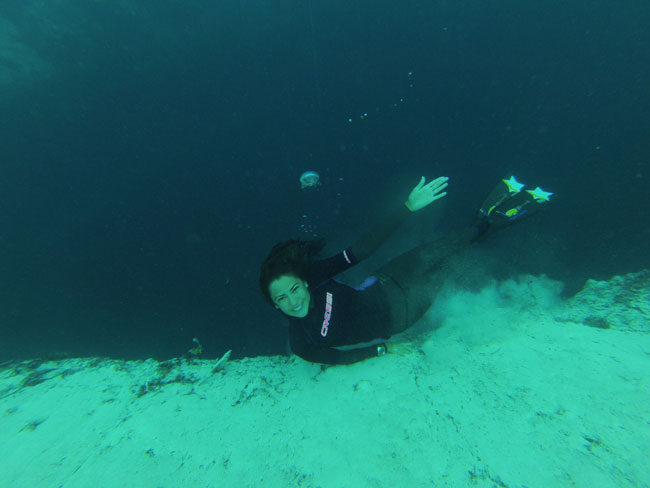
“I do breathing exercises too. I breathe more relaxed than normal, inhaling slowly and exhaling even slower. I try to feel the bottom of my lungs. Slow deep breathing helps me relax even more.”
Estrella explained that she focuses on her intercostal muscles and improving the flexibility of her diaphragm. She stretches her lungs to full capacity, emphasizing the importance of being “delicate: I make my lungs full and stretch the muscles even more.”
I struggled a bit to follow the explanation and she pointed me to a video on YouTube about a yoga exercise, uddiyana bandha (the upward abdominal lock), which cleared things up.
“Weight lifting is important,” Estrella continued, “so that you are strong, but be sure muscles don’t use too much oxygen. I’ll do fewer repetitions without breathing. My muscles get bigger but they get used to not having too much oxygen. I will also run full speed uphill for 100 metres/yards as if a lion is after me. I walk down, then run up again. I will do this three times to start, and then increase the repetitions to four or five. Massages are great too. They help reduce lactic acid levels and help you recover faster.”
As for training in a pool or open water, Estrella first, and adamantly, points out the absolute need to work with someone who has the requisite knowledge: “Pay attention to this 100 percent of the time. For any in-water work, it is extremely important never to do it by yourself.”
She swims 50 metres/yards at full speed, then she breathes for four or five minutes. She’ll do this three times to start and increase the repetitions to five (just like running.) She also swims relaxed, end-to-end, while breathing deeply and taking twice as long to exhale as to inhale.
In the lead up to a major freediving competition, Estrella said that “At the start of the season, I begin with something easy and gradually increase in 3 metre/10 foot increments. I use a weighted line with a depth mark and I don’t exceed this [planned] depth. When approaching my best performance, I go step by step, little by little.”
Again she emphasizes how important it is to make sure you know all the safety procedures. It’s mandatory to get professional education to engage in serious frediving.
Estrella finishes up by adding that its vital not to over train. “It’s sometimes easy to over train; rest is as important as the training for your best performance. Listen to your body; if you’re tired, don’t train. I rest one or two days a week and vary my training.”
-Guest blogger: John Kinsella
*Photos courtesy of freediving champion Estrella Navarro / estrellanavaro.com
